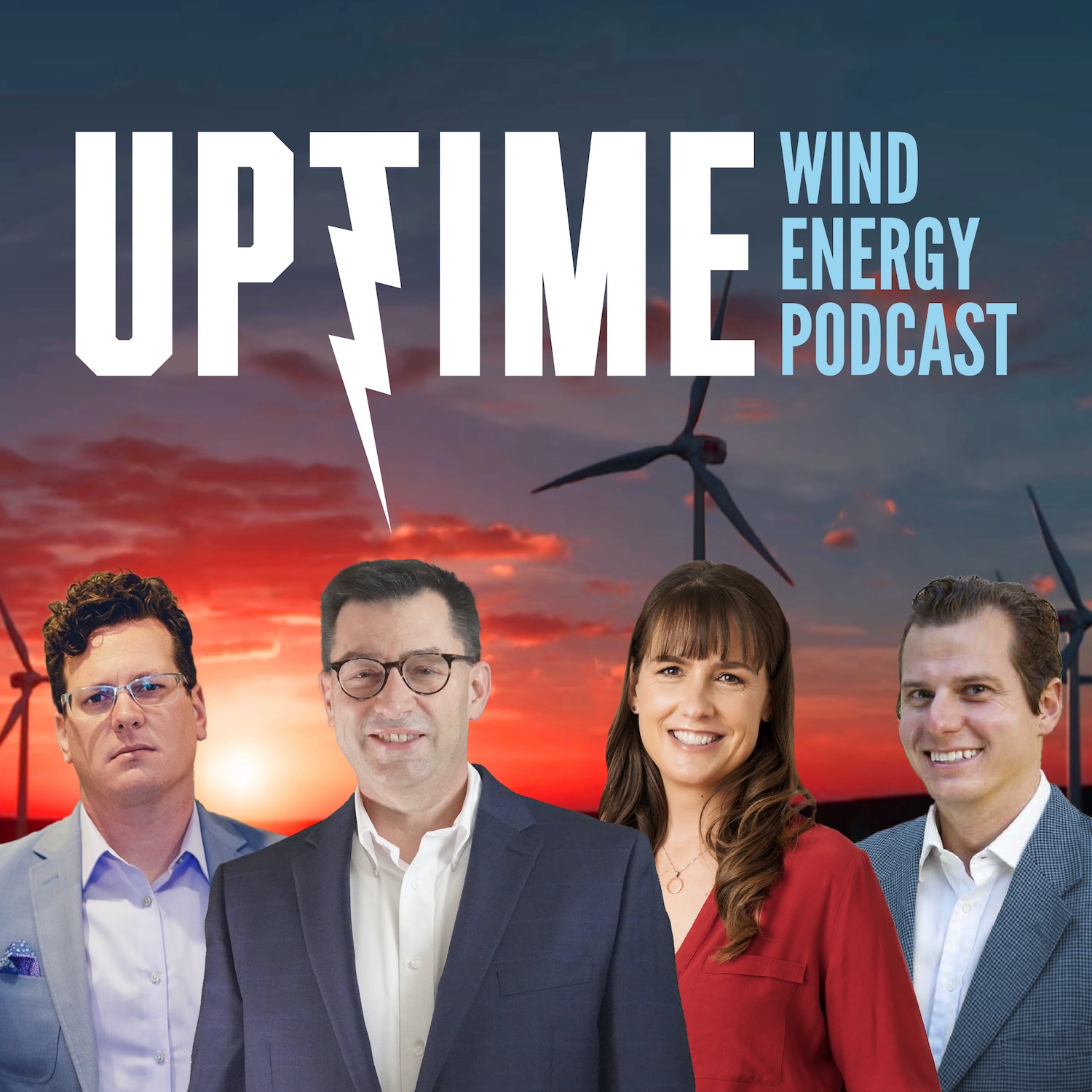Sinonus Blade Batteries, G+ Safety Report, ATT’s Immersive Safety Training
Description
This week we discuss Sinonus' innovative approach to using wind turbine blades for energy storage and the G+ Global Offshore Wind Health and Safety Organization's report on safety incidents. Allen and Joel discuss Active Training Team's (ATT) immersive safety training methods, featured in PES Wind Magazine. We also highlight Mississippi's first utility-scale wind farm, Delta Wind, featuring 41 Vestas 4.5 MW turbines.
Sign up now for Uptime Tech News, our weekly email update on all things wind technology. This episode is sponsored by Weather Guard Lightning Tech. Learn more about Weather Guard's StrikeTape Wind Turbine LPS retrofit. Follow the show on Facebook, YouTube, Twitter, Linkedin and visit Weather Guard on the web. And subscribe to Rosemary Barnes' YouTube channel here. Have a question we can answer on the show? Email us!
Pardalote Consulting - https://www.pardaloteconsulting.comWeather Guard Lightning Tech - www.weatherguardwind.comIntelstor - https://www.intelstor.com
Allen Hall: A UK plane passenger awoke from a long nap thinking he'd arrived at the destination, only to realize the aircraft was still stuck at the gate. And if you haven't seen this little clip, this guy was sleeping for a couple of hours. Over in the UK, wakes up, asks his neighbor, Hey, are we there yet? And she turns and says, no, we haven't left.
We recently had that happen to us coming back from San Diego, where I took a nap, and I swear, it must have been an hour and a half later, we hadn't moved. And I don't, I think Rosemary, you've been on some really long flights too. Are you getting stuck on the ground for some of these flights?
Rosemary Barnes: It is so annoying when you're stuck on the ground, like before you've got a, I don't know, an 18 hour flight or whatever to get stuck on the ground for hours.
And you're like, we're not even, we're not even progressing. It's really hard to deal with mentally. But they do often make it up because obviously they can, they don't fly as fast as they can around the world all the time. They fly in the way that's most fuel, more fuel efficient. So sometimes they can burn a bit more fuel to get you there faster. If they, yeah, if there's an economic reason for them to they're going to have to, pay some penalties or hold a, of the next flight for people who are, yeah, need to transfer.
Joel Saxum: You could have been on a flight like Allen and I were. Where, we were supposed to board at 4pm, we didn't end up boarding until 9pm, and then once we boarded, and everybody got settled down and we were ready to push back from the gate, then they informed us that the pilots had timed out on their daily time limit, so they Did we all off boarded and then had to get moved to flights the next day.
Philip Totaro: I once fell asleep on a train in Switzerland that eventually led me to being escorted out of the country. It can happen.
Allen Hall: Welcome to the Uptime Wind Energy Podcast. I'm Allen Hall and here's this week's headline...
More Episodes
Allen Hall and Joel Saxum interview Dr. Elif Ecem Bas, a PhD project engineer at R&D Test Systems in Denmark. Dr. Bas discusses how R&D Test Systems is leveraging digital twin technologies and hybrid testing to improve the efficiency and effectiveness of testing wind turbine components,...
Published 06/27/24
Published 06/27/24
TPI Composites sells its automotive business, Fortescue invests in Nabrawind's innovative wind turbine technology, LiftWerx receives a majority equity investment from TowerBrook Capital Partners, and Denmark's Export and Investment Fund supports Vestas' involvement in Australia's Golden Plains...
Published 06/24/24


